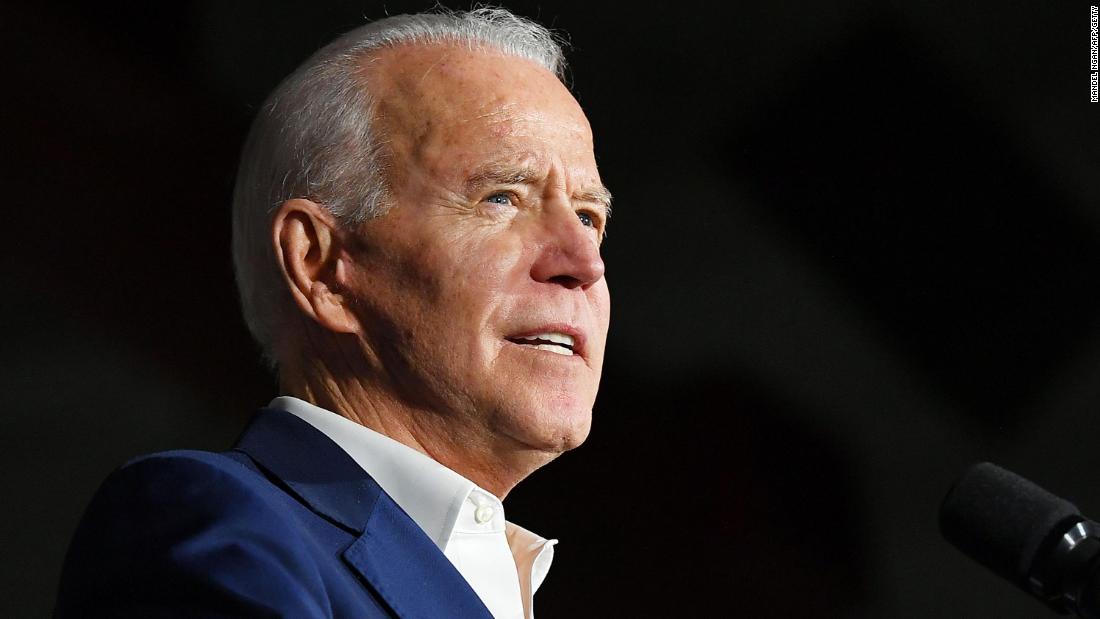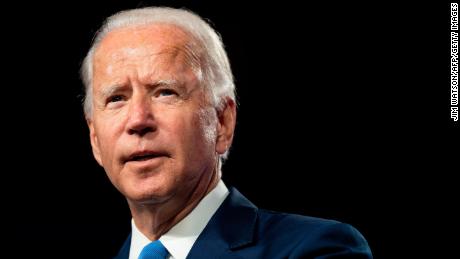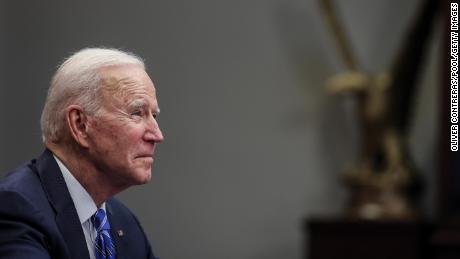With new infections and deaths way down from their peaks of a horrific winter, Biden can afford to conjure hope that better days may be imminent
“This bill represents a historic, historic victory for the American people,” Biden said Wednesday, touting his rescue plan that finally cleared Congress on Wednesday and pivoting to an address that he said would inform the country what “comes next” in the effort to prevail over the coronavirus.
The virus is far from purged. Covid-19 variants may trigger a new spring surge in infections before vaccination campaigns can tamp them down. Republican governors racing to open their states with cases still at a high plateau could also cause a new wave of unnecessary deaths.
It will be a massive task to ensure a swift, smooth disbursement of American Rescue Plan largesse and to get money quickly into vaccination drives, for example, in ways that speed the pandemic endgame. Any corruption or bureaucratic glitches will only fuel Republican claims the plan is a massive liberal handout.
The White House hopes to repair Biden’s reputation for bipartisan compromise — battered by unanimous GOP opposition to the Covid-19 rescue plan — with an infrastructure package. But when the President ventures into more controversial legislative areas, such as a vast voting rights bill that has already passed the House and a climate bill, his popularity will come under pressure. He will have to consider a nuclear option of seeking to abolish or at least amend Senate filibuster rules that allow Republicans to easily kill legislation.
Controversial foreign policy gambits like an attempt to coax Iran back into a nuclear deal will also expose Biden to attacks at home.
A historically fast start
If Biden succeeds in making a flurry of child tax credits, health insurance subsidies and nutrition assistance measures permanent, he will deserve a place in the pantheon behind reforming Democratic presidents such as Lyndon Johnson and Franklin Roosevelt, who used vast federal power to lift Americans out of poverty.
What was true at the start of the Biden administration remains true now: The President will be judged on his capacity to bring the country out of the pandemic. If he succeeds in leading America back to normality this year, his place in history will be secure whatever else happens in his term. The blanket Republican opposition to the Covid-19 bill may also look like a bad bet.
Since taking office, Biden has led the nation in mourning for 525,000 lost citizens and has managed a steady rise in vaccinations, which now average 2 million a day. He is on course to blast past his target of 100 million vaccines in arms in his first 100 days. While his team has been unwilling to credit the previous administration’s work in helping to develop the vaccine, it has put in place tangible improvements in what was a threadbare rollout effort.
The overhaul of the US counter-pandemic strategy after Trump’s denial and mismanagement and Biden’s success in passing the Covid-19 rescue plan leave an impression that the new President is effectively wielding the tools of his office, after a lifetime Washington apprenticeship.
The agreement he brokered for Merck to manufacture a Covid-19 vaccine developed by its rival Johnson & Johnson, for example, appeared to be a far more effective use of the wartime powers in the Defense Production Act than was managed by the Trump administration. And Biden’s intervention helped coax moderate Democratic Sen. Joe Manchin of West Virginia on board the rescue act — an unabashed liberal bill.
Biden’s impact is also being felt in the way he has restored traditional expectations of presidential behavior and has projected human decency from the White House — for instance, when he visited an old friend, former GOP Senate Majority Leader Bob Dole, after his recent cancer diagnosis.
No longer does the president of the United States spend his time attacking American democracy, waging personal feuds on Twitter or cratering painstakingly brokered political compromises in Congress.
As in the campaign, when his pandemic-enforced spell at his Delaware home made him an elusive political target, Biden’s rationed public appearances have made it tough for Republicans and the conservative media to line him up.
Washington journalists are complaining that the new President has yet to hold a formal news conference. But the strategy appears to be working. Perhaps because he is an old, White man, Biden is not the kind of lightning rod for right-wing radicals that former President Barack Obama was early on. Pro-Trump pundits have spent much of the last few weeks trying to whip up a storm over culture war issues like the supposed “cancellation” of children’s author Dr. Seuss. The White House has refused to take the bait.
Tough tests ahead
Early victories do not guarantee successful or ultimately popular presidencies. The job is so vast, and the challenges — from domestic security threats to a sudden foreign policy crisis — can be grave and unexpected. The pandemic, which destroyed the economy Trump had hoped to ride to reelection, is proof of that.
If Biden fails to get the immigration crisis under control, the success of passing the rescue plan may be quickly forgotten. White House press secretary Jen Psaki refused even to call the situation a “crisis” on Wednesday.
The President is also under extreme pressure on the issue of getting kids back to in-person classes now that he has secured billions of dollars for fixes, including improved ventilation in school buildings, for instance. While education is largely a state and local responsibility, the hardest problems reach the President — who gets the blame if he can’t fix them.
One of the most revealing aspects of the effort to pass the rescue plan was how powerful liberal figures such as Vermont’s Sen. Bernie Sanders embraced the bill as a monumental liberal reform. But progressives were disappointed that a hike in the federal minimum wage to $15 an hour was removed in the Senate, and the tensions between rival wings of the party are sure to resurface.
One crucial issue overshadowed by the race to vaccinate Americans and put them back to work is the unresolved threat to American democracy. Republican state legislators across the nation are rushing to suppress the potential vote of the 2022 midterm elections and the 2024 presidential election with new laws that often directly discriminate against minority and Democratic voters.
The For the People Act now awaiting attention in the Senate is meant to address such behavior and could be a defining moment for the US political system.
Given such tests, Biden’s objectively strong start to his presidency is only revealing the height of the political mountain up ahead.
![]()






